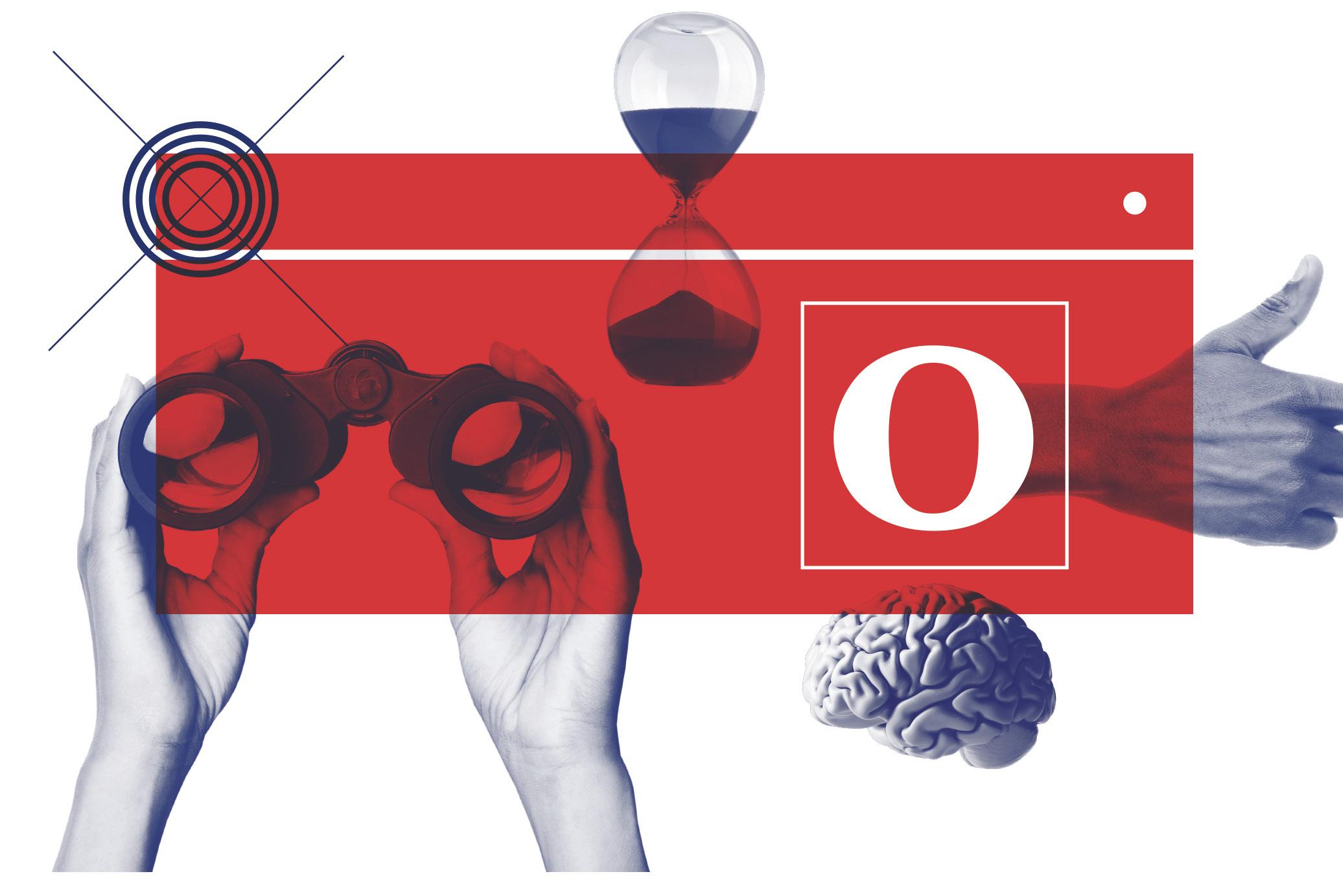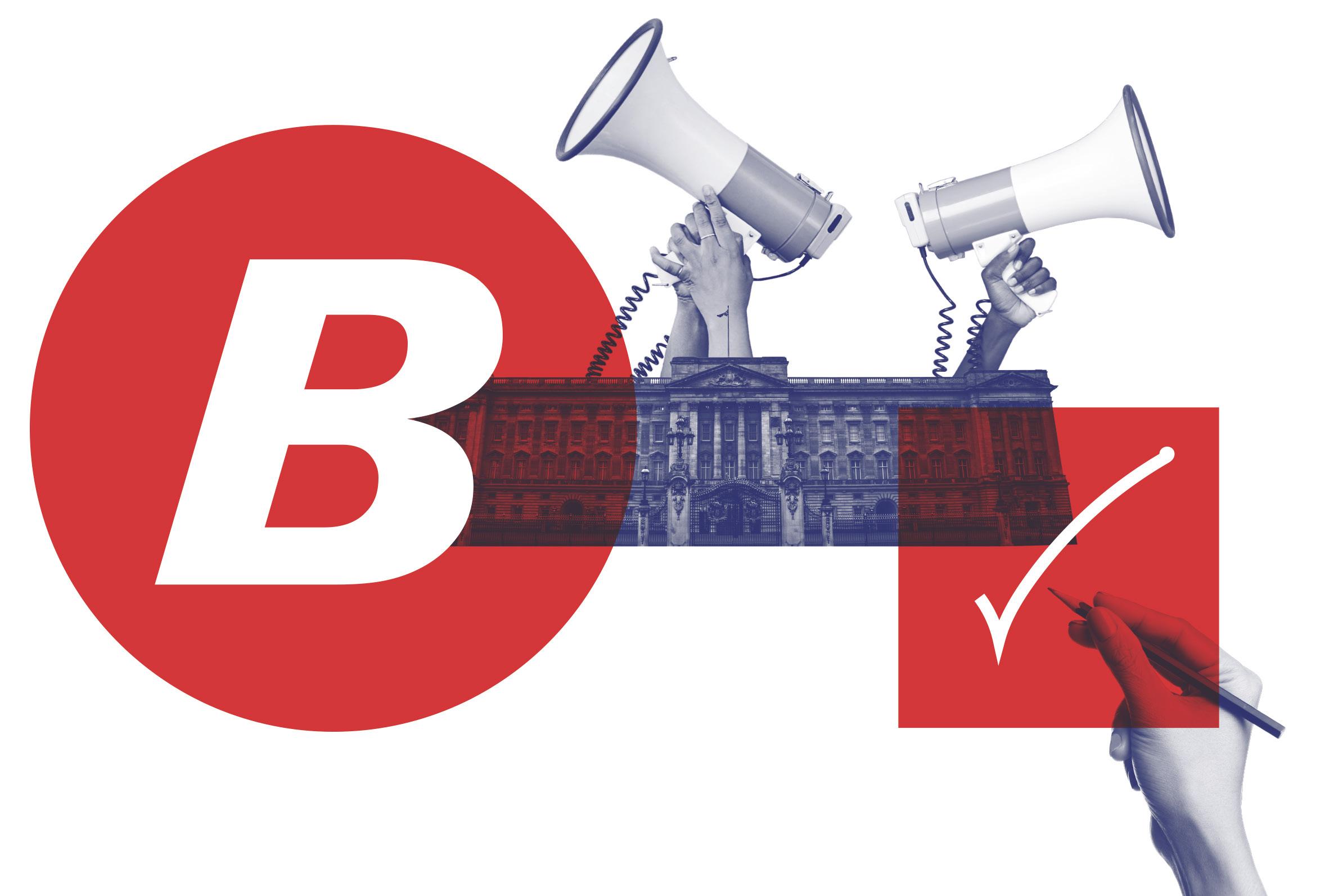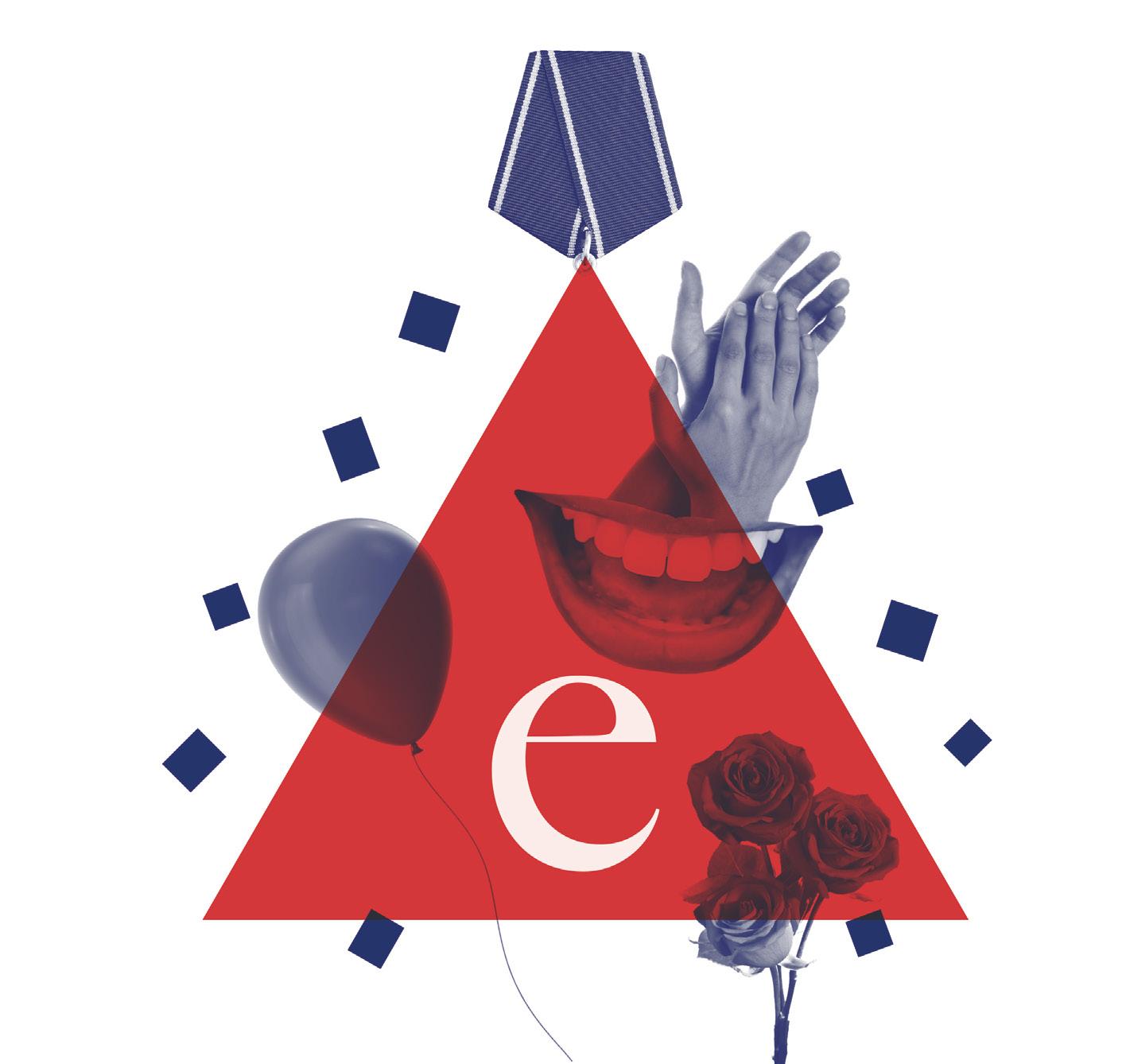
9 minute read
Honouring PRs – and PR for the Honours
Getting nominated for an honour or award is simpler than you think – but the process could do with some more PR.
BY SAM BURNE JAMES
Advertisement
'Honours scandal exposed’ screamed an indignant MailOnline headline last July, on a piece outlining several consultancies’ work putting clients forward for OBEs, Knighthoods and the like.
Every so often, national media turn their attention to those firms on the PR industry’s fringes which claim to assist in securing gongs. These sometimes showcase unprofessionalism and consultants’ economical use of the truth, but also regularly point out that such consultancies aren’t breaking any rules. And while they might be embarrassing for the celebrities or business leaders sometimes exposed as employing such firms, the reality is that the supposedly scandalous revelations are of work closely resembling the award entry writing work (which is bread and butter for many PRs).
The tone of those pieces reflects national media’s disdain and mistrust of PR, but it also illustrates that the British honours system retains, at best, an air of mystery and inaccessibility. At worst, it is viewed as an establishment stitch-up, in which backs are scratched, money talks, and shady lobbyists pull strings.
Despite how the media might portray it, PR as an industry has little skin in this game: several leading practitioners confessed that they wouldn’t know where to start if their client was pining for a gong, not that they had ever been asked.
Fortunately, Influence is here to help. The simple answer is go to gov.uk/honours, read the guidance document, fill out the form, and send in at least two supporting letters describing why your client or colleague deserves recognition (self-nomination is not allowed).
Not all recipients go through the exact same formal route – departing Prime Ministers can bequeath honours on exit, for example. Similarly, it’s hard to imagine the Honours and Appointment Secretariat sat around waiting for someone to sort out paperwork for Captain Sir Thomas Moore and Marcus Rashford MBE, for example. And with Blair’s “cash-for-honours” scandal still a relatively fresh memory, most lists include recipients assumed to be beneficiaries of (ahem) political favour.
But Mark Llewellyn-Slade, founder of the consultancy Awards Intelligence, says that such recipients are “insignificant in percentage terms”, with 1,000-plus people honoured in most New Year’s and Queen’s Birthday Honours lists.
Awards Intelligence charges between £4,900 and £40,000 (plus VAT) for getting citations and supporting letters – at least two letters, and sometimes as many as 20 – ready for judging. Its 17-strong team also advise on the system’s less-publicised ins and outs – the fact that you can nominate someone and later provide a further update letter, for example.
July’s Mail piece quoted a “Cabinet Office source” suggesting such services were “damaging” to the system’s reputation. Llewellyn-Slade disagrees. “The honours system is a publicly accessible process,” the former Bell Pottinger and Weber Shandwick consultant says. “The world is full of experts. If your son or daughter wants to learn to drive, you can teach him yourself or you can get an expert driving instructor who will probably do a better job. If you have a legal issue you can represent yourself or you can get an expensive solicitor. Is it unfair that some people can afford it and that other people can’t? I don’t know.”
He also acknowledges that some clients see honours as a means to an end, commenting: “People tell us that getting an honour is the best piece of PR and marketing they can do.”
But he insists his firm would never exercise the more questionable tactics of lobbying committee members or politicians. “We do not lobby. It’d do more harm than good I think, I don’t think committee members want tapping on the shoulder,” he says.
The Cabinet Office concurs. “All nominations are independently factchecked, validated and assessed, regardless of the source,” a spokesperson says. “They are then presented to the independent honours committees in the same format, for the same scrutiny. Nominations are reviewed by these committees, and then their recommendations are put forward to the Main Committee, Prime Minister and ultimately HM the Queen.”
That process regularly takes more than a year. “I know of one or two examples of people who have been put forward and have been waiting a long time – or are still waiting – because the checks really are quite rigorous,” says Pagefield founder Mark Gallagher, who says he has added his support to honours nominations in the past, but never as a paid service. “I think the honours system as a whole is incredibly good at applying the right tests and filters,” he says, arguing that while some inappropriate nominations slip through the net and attract criticism, they are a “very tiny number overall”.
Not everyone is as charitable. Naheed Mehta MBE is a freelance communicator, latterly employed by Edelman, who got her honour in 2004 as a senior Government comms practitioner. “The system over the years has I think been very used and abused. I think that started with Margaret Thatcher, when she awarded all the proprietors of newspapers knighthoods. Then Cameron basically gave a lot of people who had failed miserably at their jobs awards, and then Boris Johnson has used it to get people like [Evening Standard proprietor, Baron] Lebedev into the Lords,” she says.
THE AWARDS ON OFFER
COMPANION OF HONOUR
Awarded for “major contribution to the arts, science, medicine, or government lasting over a long period of time”.
KNIGHT OR DAME
Awarded for a “major contribution in any activity” which peers would see as “inspirational or significant”.
ORDER OF THE BRITISH EMPIRE
Commanders of this order (CBEs) are generally honoured for work at national level, officers (OBEs) for more local activities, and members (MBEs) for community work.
BRITISH EMPIRE MEDAL
Given “for a ‘hands-on’ service to the local community” over a shorter duration of time.
ROYAL VICTORIAN ORDER
For people who have personally served the Queen or the Monarchy.
ORDER OF THE BATH
For senior civil servants and military officers.
ORDER OF ST MICHAEL AND ST GEORGE
Given to diplomats and people serving the UK abroad.

Mehta acknowledges feeling “a bit hypocritical” saying this, having accepted an award herself. She explains: “I was very much in two minds as to whether to actually take it – and being from an ethnic minority, having ‘empire’ in the wording does make you cringe a little bit. Then I just thought that my mum would be so delighted to go to the palace – and she was.”
Another communicator to receive an MBE is Sandy Lindsay, founder of the agency Tangerine and digital apprenticeship provider The Juice Academy. Like Mehta, she still has no idea who nominated her. “I was at home with two broken legs when the envelope came. Two of my friends were helping me out and brought me what was a very normal-looking envelope, it doesn’t have a wax seal or gold ink or anything. I opened it and I read it. Then I read it again,” she recalls, saying that it took a moment to process its formal, “olde worlde” language.
Her legs healed and she went to the palace in early 2016. “It was Charlie who gave it to me,” she recalls. “And he was incredibly sweet. It was an amazing day, the soldiers there who run it are all volunteers, they love it, they make you feel so special, like you’re the only person who has ever been there. It was such a special day.”
She was even taught how to curtsy by Michael Ball OBE, when waiting nervously in line with the entertainer. “He said; ‘What’s the matter?’, and I said; ‘It’s alright for you, you’ve just got to bow, I have to curtsy’. And he said; ‘Don’t you know how to curtsy and I said; ‘Well no, why on earth would I?’”
More so than Mehta, Lindsay feels able to disassociate with the more questionable aspects of the system. “I know that some people can be quite cynical about it and I’m sure there are people who have ‘bought’ their honour, but if you know you’re the person who has got it for the right reason, there is no higher compliment really,” she says. Lindsay is proud to use the MBE in her personal branding, saying it helps her get speaking opportunities for the academy. “If it means my emails get read more or I get more noticed and it means I can do more to find work for those kids, why wouldn’t I? I don’t put it on restaurant bookings or use it to jump queues.”
3,500
THE NUMBER OF NOMINATIONS RECEIVED ON AVERAGE EACH YEAR
(Source: Cabinet Office FOI)
46
THE AVERAGE NUMBER OF PEOPLE TO REJECT AN HONOUR EACH YEAR FROM 2015 TO 2019
(Source: Cabinet Office FOI)
For most PR professionals, their most likely interaction with the honours system is after a colleague gets that “olde worlde” letter, swearing them to secrecy pending public announcement. Russell Hargrave is a journalist who previously held PR roles in several charities. He says he had a strong enough relationship with a senior colleague in one job that they discreetly let him know about their impending gong, buying him time to prepare media outreach.
“You can then talk to journalists in a way that doesn't break the rules, but makes it pretty obvious what you’re talking about: ‘I notice you did this last year for someone who got an honour – what might you say if, hypothetically, I had a colleague in a similar situation?’” he recalls asking. “As a PR, this is a great opportunity to hit your targets, tell your story and get those positive pieces.”
“We did come across one challenge,” Hargrave continues, “an internal issue – we had a rather left-wing set of colleagues who we worried might have thought that their boss ought to have said ‘no’, so we had to manage that risk.”
Such critics do not pose an existential threat to the system, argues Pagefield’s Gallagher who, although a fan, feels it could be better publicised. "If I had one criticism of the honours system, it would be to make people more aware that that [nomination] process exists, and that it's open to everyone. The fact that it can sometimes feel a bit more closed to many people doesn't delegitimise the system, but certainly the Government could do more to highlight how easy it is to nominate someone,” he says.
With the 2021 New Year’s Honours containing a new award for those involved in the pandemic response, and plenty of NHS staff being recognised, the system might appear in a good place to be right now. But the proportionately small number of questionable honourees, and the relatively small-scale use of quasi-PR services to smooth paths to the palace, will continue to fuel scepticism. It’s certainly hard to see the system ever achieving immunity to criticism.

RECENT PR HONOUREES INCLUDE
Jackie Brock-Doyle, executive director, communications, World Athletics, was made a CBE in 2020.
Davina Crole, a Foreign and Commonwealth Office press officer, got an MBE in 2020.
Sheila Mitchell, marketing director of Public Health England, was given an MBE in 2018.
Mark Ormrod, marketing and comms officer at the Royal Marines Association and Charity, was made an MBE in 2020.
Mike Perls, founder of Manchesterbased agency MC2, became an MBE in 2019.
Jane Shepherd, MD of Shepherd PR and a Department for International Trade export champion, also became an MBE in 2019.









